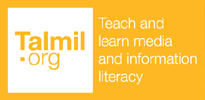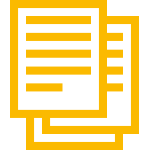

Albania
-

RSF World Press Freedom Index 2021 (position)
83of 180
-

RSF World Press Freedom Index 2021 (score)
30.59
-

Media literacy (ranking in Europe)
33of 35
-

Media literacy (score)
22of 100
-

IREX vibrant barometer (score)
22of 40
Media landscape
Media professionals in Albania have been fighting for years against legal frameworks that would further strengthen censorship, self-censorship and filing lawsuits against journalists. In June 2020, the Venice Commission issued an opinion on the amendments to the media law, which fall short of international standards and principles of media freedom and raise concerns about increased censorship and selfcensorship (1). Albania’s Public Service (RTSH) is often criticized for being under political influence, but is advancing technically, in part with the help of foreign donors. The content in the mainstream media unavoidably mirrors the existing political divide and the increasingly extreme polarization and fragmentation of Albanian society (2), and an increasing number of disinformation is noticeable. Recently established media such as Exit, BIRN, Lapsi.al, Citizens Channel and the Faktoje portal are dealing with this problem. Investigative journalism, aimed at investigating corruption and crime, is mostly present in online media. Foreign influences on media content are not too strong: although proxy news portals engage in the propaganda of countries such as Turkey, Iran, and China, a flagrant, coordinated effort in this regard is not highly visible. (3)
Journalists
The position of journalists in Albania is extremely unfavorable, as they are exposed to threats and attacks on the one hand, and frequent lawsuits filed by state officials and pro-government businessmen on the other. Freedom House states that reporters have little job security and remain subject to lawsuits, intimidation, and occasional physical attacks by those facing media scrutiny (4). Recently, various centers of power have been using Strategic Lawsuits Against Public Participation (SLAPPs), as experienced by BIRN Albania (3).
Audience and media literacy
With the exception of non-governmental sector initiatives, there are not yet in place plans to include media literacy in the education system. Research conducted by IPSOS shows the dominance of television as the main source of information on a daily basis, as well as the most trusted source of information, especially for age groups above 45. The proportion of people who tend to trust the media was only slightly higher than those who do not trust it (6).
Medias outlets

National media
Albanian Center for Quality Journalism
Description: The Albanian Center for Quality Journalism is a non-political, independent, not-for-profit organization run by young professionals based in Tirana, Albania. It is dedicated to investigative and data journalistm, and the promotion of ethical journalism through the different mediums. Since 2018, the Center started a partnership with the Voice of America for the production of investigative stories.
Citizens Channel
Citizens Channel is a media that aims to promote the development of citizen journalism in Albania and to empower responsible voices, in line with the values of an inclusive and tolerant society, in respect of fundamental human rights and freedoms.
Monitor
Monitor is a weekly economic magazine present in Albania since 2000. Monitor provides extensive analysis and information in the field of business, banking and finance, based on well verified and unbiased sources. Its articles are also available in English, offering foreing businessess and citizens the opportunity to be informed about the Albanian economic market.

Regional media
Agence France Presse (AFP)
Since 2017, AFP has been developing a fact checking service, which reviews news casted in the media and social networks. In the Western Balkans, AFP currently fact checks news in Serbia, Montenegro and Bosnia-Herzegovina, as well as on Facebook and other social media. In 2021, the press agency launched a worldwide public campaign on media literacy and basic fact checking tools.






